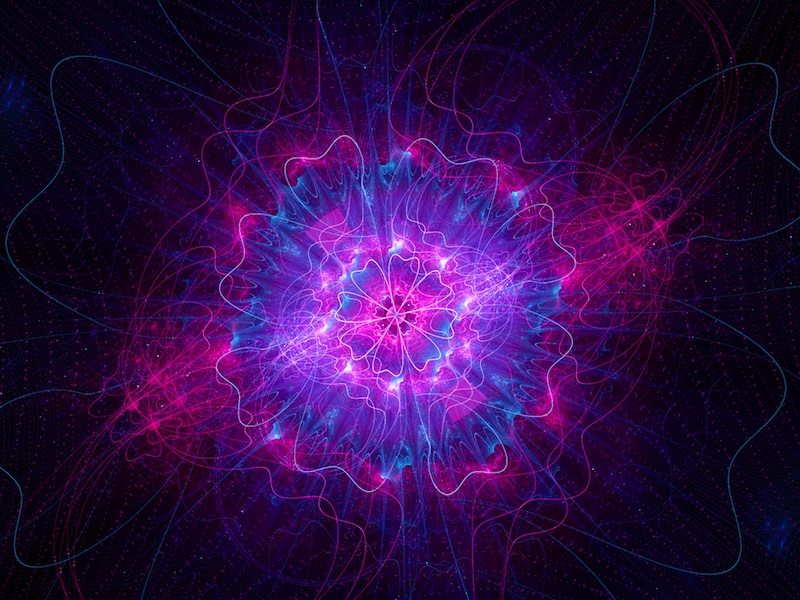Meet the Higgs Bubble That Will Destroy the Universe. Maybe.

Scientists say they know how the universe will end. It won't be a cosmic collapse but rather a giant cosmic bubble that devours everything in its path.
According to a recent paper, published on March 12 in the journal Physical Review D, the final moment for the universe will be triggered by a bizarre consequence of subatomic physics called an instanton. This instanton will create a tiny bubble that will expand at the speed of light, swallowing everything in its path. It's only a matter of time. [Top 10 Ways to Destroy Earth]
"At some point you will create one of these bubbles," study lead author Anders Andreassen, a physicist at Harvard University, told Live Science. "It will be very unpleasant."
By "unpleasant," he means the end to all life — and, indeed, chemistry — as we know it.
Very little is known about instantons, which are the solutions to equations governing the motion of tiny subatomic particles, but Andreassen loosely compared them to the phenomenon of quantum tunneling, whereby a particle seemingly defies physics to pass through an otherwise impenetrable barrier. But instead of crossing a barrier, the instanton forms a bubble within the Higgs field, the field that gives everything mass and gives rise to the Higgs boson.
Interestingly, this universe-ending bubble would never have been possible were it not for the particular mass of the Higgs boson in relation to another heavier particle, called a top quark, which comprises many atoms. If either the quark or the Higgs particle had been a little lighter, these universe-destroying bubbles couldnꞌt form.
Alas, that is not the case and so after some amount of time, a destructive bubble will form. The team calculated the shelf life of the universe as between 10 quinquadragintillion years (one with 139 zeros after it) and a mere 10 octodecillion years (one with 58 zeros after it).
Get the Space.com Newsletter
Breaking space news, the latest updates on rocket launches, skywatching events and more!
"That is a very, very, very, very, very, very, very, very, very, very long time," Andreassen said. "Our sun will burn up and many things will happen in our solar system before this is very likely to happen."
Sell-by date of the universe
It's like the milk in your fridge. The sell-by date is the earliest conceivable deadline, but chances are you can drink it after that without a problem. Of course, there's always the outside chance that something went wrong at the bottling plant and it's sour the minute you buy it. Similarly, Andreassen said, it's possible that a bubble has already formed and is hurtling toward us at the speed of light right now.
There's comfort in knowing how everything ends, but Vincenzo Branchina, a physics professor and researcher at the University of Catania in Italy who was not involved in the study, said not to start crying over sour milk just yet.
"The claim that Anders Andreassen and company are making for this number has to be taken, as they say, with a grain of salt," Branchina said.
Branchina said the Harvard team only accounted for the standard model of physics and not all the new and confusing branches, like quantum gravity and dark matter, that are still completely mysterious. In order for the universe to be consumed in an expanding ball of chaos, dark matter, a mysterious form of matter that exerts a gravitational pull but emits no light, cannot interfere. Which is unlikely, since it might comprise 80 percent of our universe.
Similarly, Branchina has shown that quantum gravity — a bizarre part of physics that attempts to reconcile quantum mechanics and Einstein's theory of general relativity, that we have barely glimpsed — could make the universe far more stable or unstable, depending on its rules. He said that since nobody understands this new physics, we cannot know anything about the universeꞌs ultimate end.
Andreassen agreed.
"I wouldnꞌt put my money on this being the end of the story. I would expect dark matter to come kick in and change the story," Andreassen said.
Originally published on Live Science.
Join our Space Forums to keep talking space on the latest missions, night sky and more! And if you have a news tip, correction or comment, let us know at: community@space.com.










